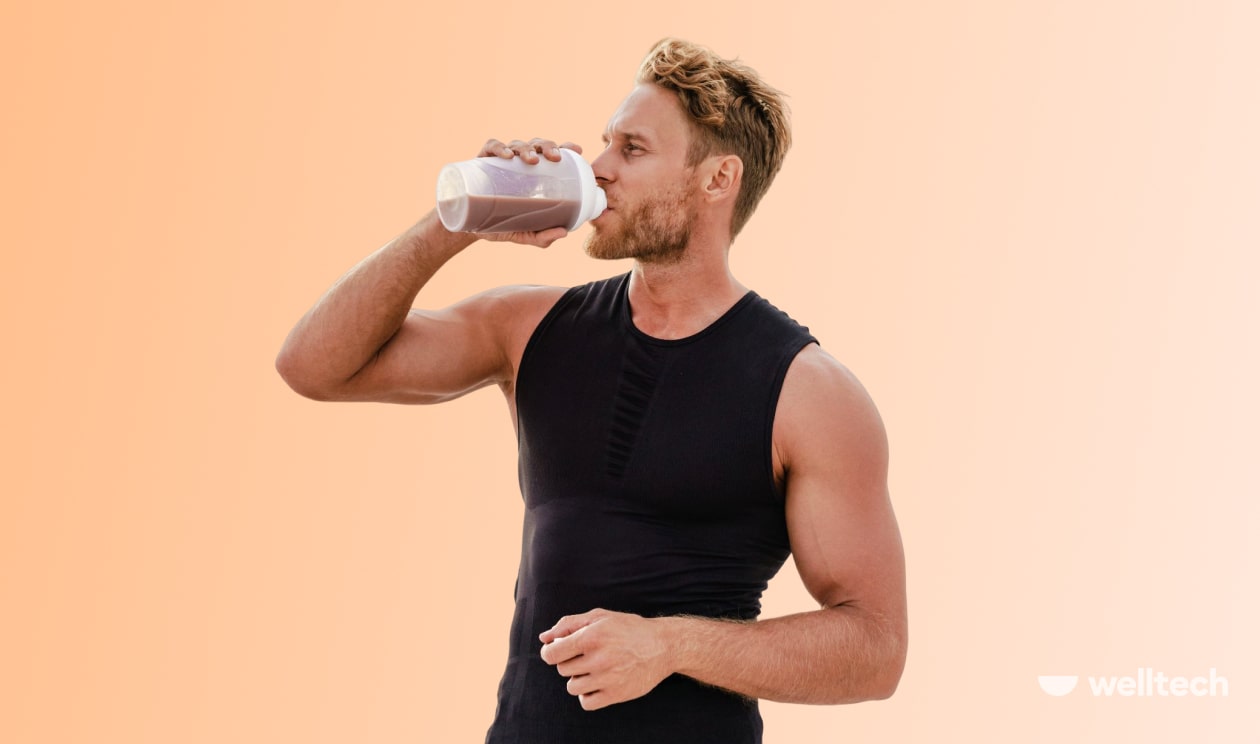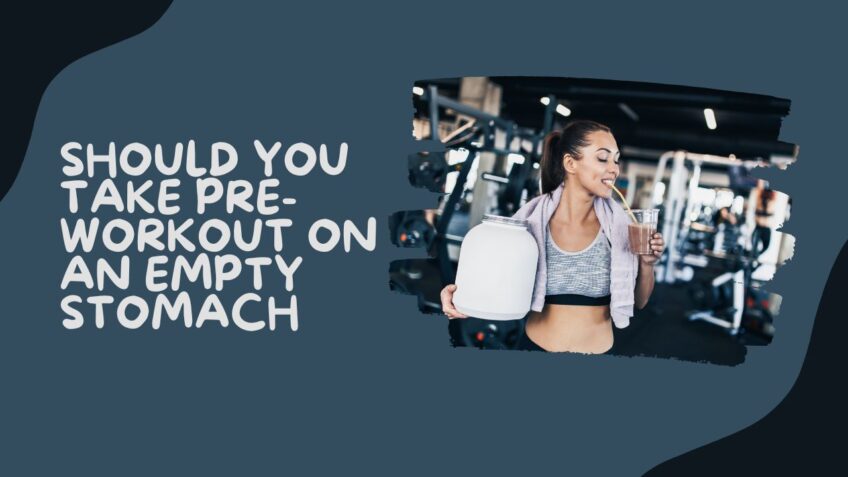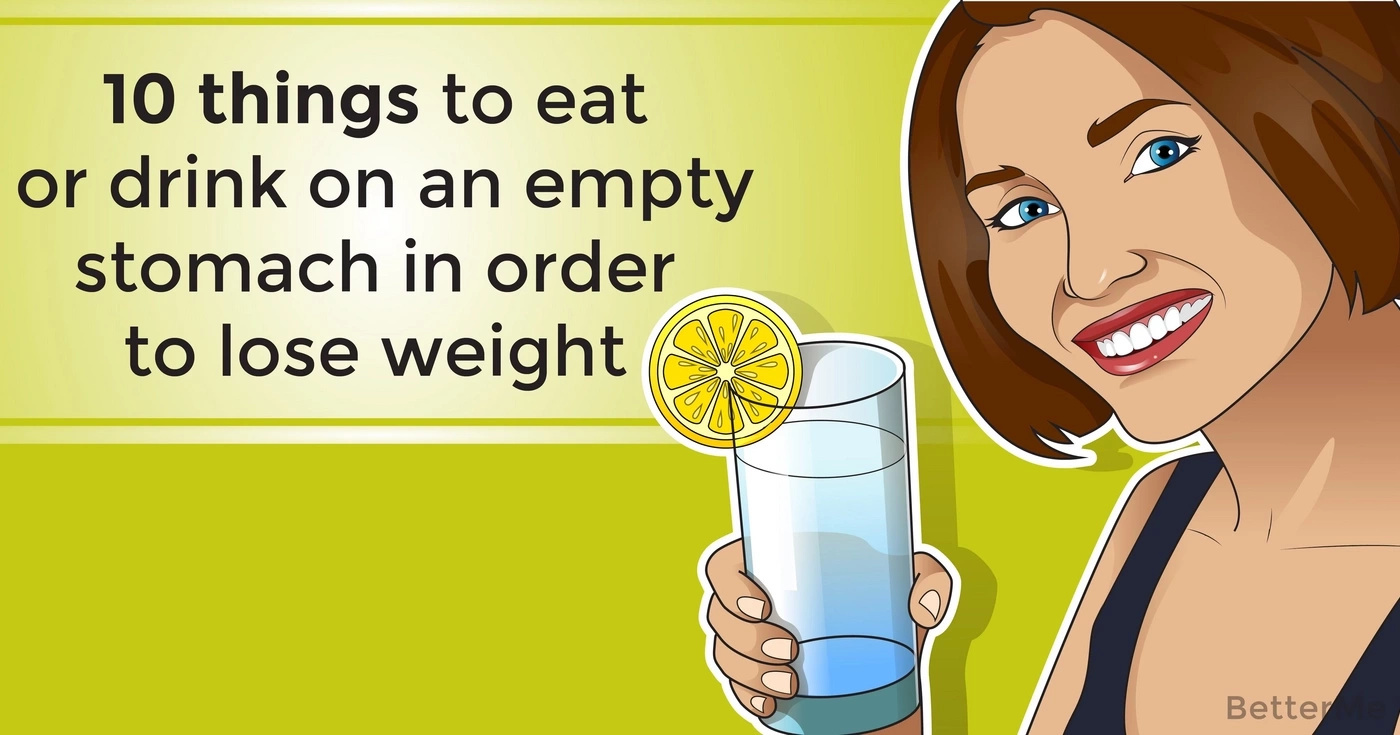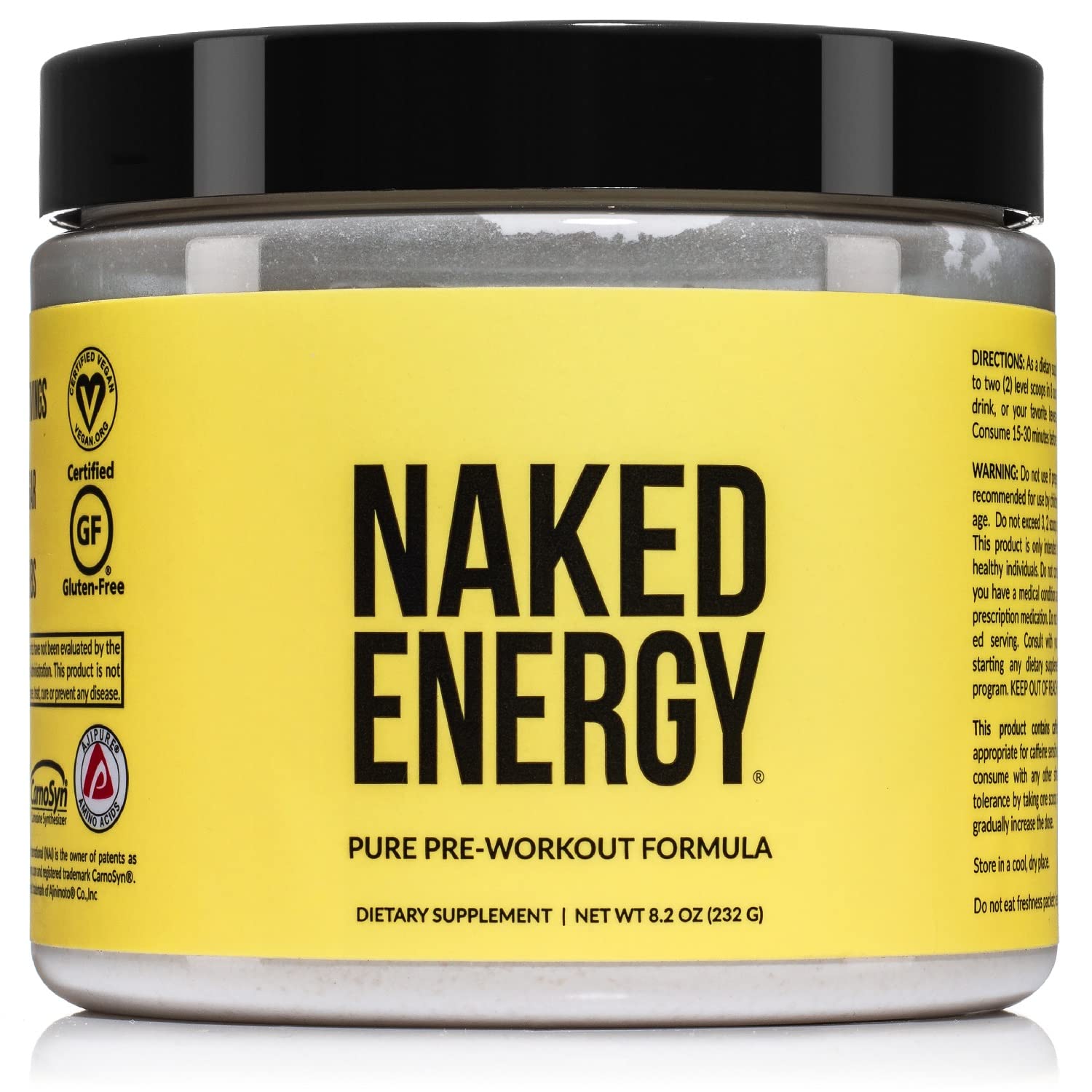Can I Drink Pre Workout On An Empty Stomach

The alarm blares, and the thought of a grueling workout looms. Many reach for their pre-workout supplement, a concoction promising enhanced energy and performance. But a question lingers, a concern whispered in fitness circles: "Can I drink pre-workout on an empty stomach?" The answer, it turns out, is far more complex than a simple yes or no, and the consequences of ignoring the nuances can range from mild discomfort to more serious health concerns.
This article delves into the science behind pre-workout supplements, exploring their ingredients and how they interact with the body, particularly when consumed on an empty stomach. We'll examine the potential benefits and risks, considering individual sensitivities and offering evidence-based recommendations to help you make informed decisions about your pre-workout routine. Understanding the potential pitfalls is crucial for maximizing gains while minimizing harm.
Understanding Pre-Workout Ingredients
Pre-workout supplements are a diverse category, but many share common ingredients designed to boost energy, focus, and performance. Caffeine is a near-ubiquitous component, acting as a stimulant to increase alertness and reduce perceived exertion.
Beta-alanine is another frequent addition, intended to buffer muscle acidity and delay fatigue. Creatine, often included, supports energy production during high-intensity exercise.
Other ingredients like L-citrulline and arginine are incorporated to enhance blood flow and deliver nutrients to muscles.
The Empty Stomach Dilemma: Potential Risks
Consuming pre-workout on an empty stomach can amplify the effects of these ingredients, sometimes leading to unpleasant side effects. Caffeine, in particular, can cause jitters, anxiety, and increased heart rate when not buffered by food.
This is because food helps slow down the absorption of caffeine, providing a more gradual and sustained release of energy. Without food, the caffeine surge can be overwhelming for some individuals.
Furthermore, certain ingredients like beta-alanine can cause a tingling sensation known as paresthesia. While generally harmless, this sensation can be intensified on an empty stomach and be quite uncomfortable for some.
Some individuals may experience gastrointestinal distress, including nausea, stomach cramps, and diarrhea. The concentrated nature of pre-workout supplements, combined with an empty stomach, can irritate the digestive system.
According to a study published in the Journal of the International Society of Sports Nutrition, individuals with pre-existing gastrointestinal issues may be particularly susceptible to these negative effects. It's crucial to listen to your body and adjust your approach accordingly.
The Empty Stomach Dilemma: Potential Benefits (and their Limits)
While the risks are considerable, some argue that taking pre-workout on an empty stomach allows for faster absorption and a quicker onset of effects. The rationale is that without food to slow down digestion, the ingredients enter the bloodstream more rapidly.
This can be appealing to those seeking an immediate energy boost before a workout. However, the perceived benefit of faster absorption must be weighed against the increased risk of adverse effects.
Moreover, the actual difference in absorption speed may be negligible for many individuals. The type and quantity of food consumed prior to taking the supplement can also influence absorption rates.
Individual Sensitivity and Tolerance
The effects of pre-workout on an empty stomach are highly individual. Factors such as body weight, metabolism, caffeine sensitivity, and pre-existing health conditions all play a role.
Someone with a high caffeine tolerance may experience minimal side effects, while a more sensitive individual could experience significant discomfort. It is vital to be aware of your own body's response to stimulants and other ingredients.
Those with heart conditions or anxiety disorders should exercise extreme caution when using pre-workout supplements, particularly on an empty stomach. Consulting with a healthcare professional is always recommended in such cases.
Evidence-Based Recommendations
The available evidence suggests that consuming a small meal or snack before taking pre-workout is generally the safest and most effective approach. This can help mitigate the risks of side effects while still providing a performance boost.
A light snack containing carbohydrates and protein, such as a banana with peanut butter or a small bowl of oatmeal, can help buffer the effects of stimulants and provide sustained energy. Experimenting with different food combinations can help you find what works best for you.
If you choose to take pre-workout on an empty stomach, start with a lower dose and carefully monitor your body's response. Gradually increase the dose as tolerated, but never exceed the recommended serving size.
Stay hydrated by drinking plenty of water before, during, and after your workout. This can help reduce the risk of dehydration and gastrointestinal distress.
The Role of Regulation and Product Quality
The pre-workout supplement industry is not heavily regulated, which can lead to inconsistencies in product quality and ingredient labeling. Some products may contain undisclosed ingredients or inaccurate dosages.
It's essential to choose reputable brands that conduct third-party testing to ensure product purity and accuracy. Look for certifications from organizations like NSF International or Informed-Sport.
Always read the ingredient list carefully and be aware of any potentially harmful substances. If you have any concerns, consult with a healthcare professional or registered dietitian.
Moving Forward: A Personalized Approach
The decision of whether to drink pre-workout on an empty stomach is ultimately a personal one. There is no one-size-fits-all answer.
By understanding the potential risks and benefits, considering your individual sensitivity, and following evidence-based recommendations, you can make informed choices that support your fitness goals while protecting your health. Prioritize safety and well-being over the pursuit of marginal performance gains.
Future research should focus on further elucidating the effects of pre-workout supplements on the gut microbiome and long-term health outcomes. This will provide a more comprehensive understanding of the risks and benefits associated with these products and inform more personalized recommendations for their use.








![Can I Drink Pre Workout On An Empty Stomach Can You Take Pre Workout On An Empty Stomach? [Is it a Bad Idea?] - Pre](https://preworkoutguide.com/wp-content/uploads/2022/07/can-you-take-pre-workout-on-an-empty-stomach.png)









